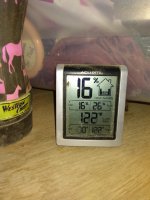With such a massive heat wave coming in, that got me thinking. For an average automobile, what's typically the max safe ambient that most vehicles are designed for? At what coolant temp should one start to be concerned?
I have an OBD monitor and noticed that today when it was +35C out with an idling engine and A/C blasting, that my coolant got up to 100C! It was interesting to see that within a few short minutes coming to a stop, that the temperature creeps up pretty quickly (even though you would likely not notice it because the typical coolant gauge on the instrument panel does not move much). That definitely seemed a bit worry-some as I'm used to seeing 85 - 90C under most circumstances and it's expected to get even hotter this week. In
Curious to see how everyone else's vehicles is dealing with the heat and if you've ever encountered any problems.
I have an OBD monitor and noticed that today when it was +35C out with an idling engine and A/C blasting, that my coolant got up to 100C! It was interesting to see that within a few short minutes coming to a stop, that the temperature creeps up pretty quickly (even though you would likely not notice it because the typical coolant gauge on the instrument panel does not move much). That definitely seemed a bit worry-some as I'm used to seeing 85 - 90C under most circumstances and it's expected to get even hotter this week. In
Curious to see how everyone else's vehicles is dealing with the heat and if you've ever encountered any problems.

